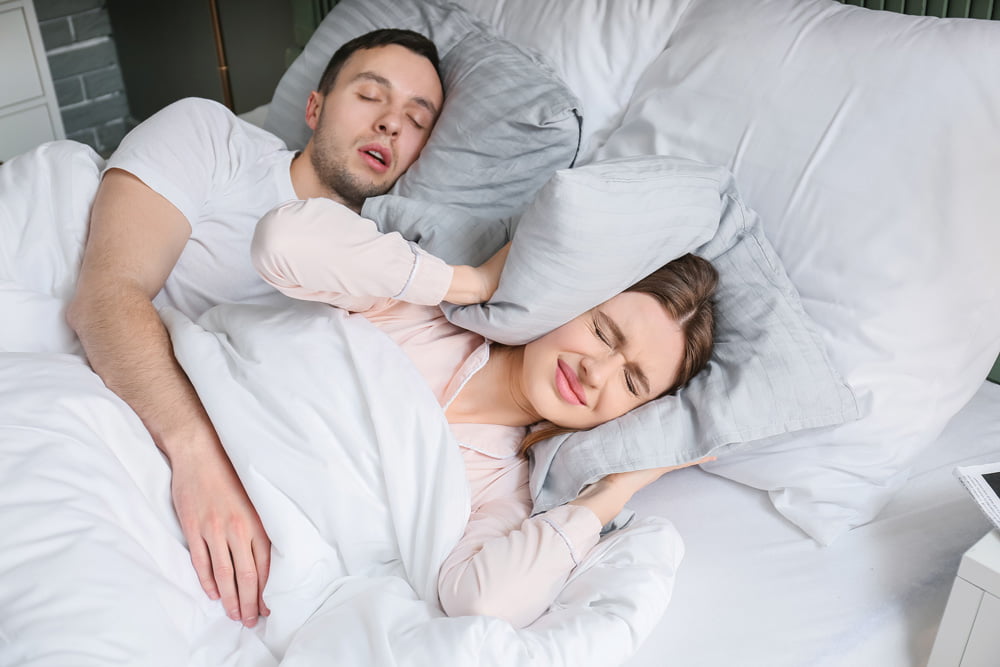 We all know that getting a good night’s sleep is essential for health and happiness, but more and more of us are finding it difficult to achieve. It might be due to staying up late and watching too many K-Dramas. Perhaps you’ve got a lumpy mattress. But chances are, a lack of quality sleep is down to a medical issue.
We all know that getting a good night’s sleep is essential for health and happiness, but more and more of us are finding it difficult to achieve. It might be due to staying up late and watching too many K-Dramas. Perhaps you’ve got a lumpy mattress. But chances are, a lack of quality sleep is down to a medical issue.
Singaporeans have been cited as the most sleep deprived globally, and it seems that unsatisfactory shut-eye might be contagious. According to a recent survey by YouGov, other residents living on the red dot also generally sleep less than they would like – 80% wish they had seven or more hours of good sleep each night, but only a quarter (27%) actually do.
“The most common sleep condition I see in Singapore (by quite some margin) is insomnia,” says Dr Sue Smith of Singapore’s International Medical Clinic (imc-healthcare.com). “I frequently see two exacerbating factors: working in a global role leads to calls at both ends of the day and burning the candle at both ends.” She continues, “The pandemic, of course, impacted our sleep in multiple ways. Some people benefitted from the absence of travel schedules and got better sleep, others struggled with higher levels of stress, anxiety and depression, which has resulted in the term ‘coronasomnia’.”
Dr Smith reveals the key problems keeping people awake and what can be done to help.
Snoring
Why it happens: Snoring is the vibration of the tissues in the throat as you breathe in and out. There are exacerbating factors, and management is based on treating the suspected or proven cause.
How to help: Try not to sleep on your back and treat exacerbating factors such as allergies and allergic rhinitis. Avoid substances that relax your airways, like alcohol, or cause nasal congestion, like smoking. Most snorers tend to be overweight and shedding excess fat can often decrease the issue. Mechanical devices like snoring head straps, sleep strips and pillows are also available.
Snoring is the fifth leading cause of divorce in Australia
Insomnia
Why it happens: Along with mental health conditions such as depression and anxiety, insomnia can be caused by the late use of screens, pregnancy, physical illness, pain and some medications.
How to help: Get a good night’s sleep bu organising your night-time surroundings, avoid screens in the bedroom and develop a regular sleep routine (easier said than done, we know!). Chamomile tea and other herbal remedies might also make a difference. Some people find sleep apps, meditation, calming stories, and white noise (we love Calm and Insight Timer) useful. Melatonin, the sleep hormone, is considered a supplement in Singapore and can be purchased over the counter. Sleep medications are also available (IMC stocks a newer sleep medication called Dayvigo which can be prescribed as a longer-term solution).
Obstructive Sleep Apnoea (OSA)
Why it happens: Sleep apnoea is when your airway briefly blocks while you’re sleeping. This is usually due to very relaxed tissues in the airway or because of the disruption of signals from the brain telling the body to breathe (or sometimes both). This can cause the symptom of waking up feeling unrested and suffering from severe fatigue throughout the day. It’s often noticed by someone’s partner who’s observed their other half snoring, snorting, and waking up at night gasping for breath after a short period of not breathing.
How to help: According to research, 58% of moderate-severe OSA is due to obesity. This can lead to excess fat deposition around the neck and chest, narrowing the airway and leading to OSA. See a doctor straight away if you suspect you have sleep apnoea. Treatment includes managing risk factors such as obesity, alcohol, smoking and some medical conditions, and using mechanical devices to ensure the airways stay open.
Some of us drift into a peaceful slumber in a second, others dread hitting the sack due to a sleep problem. We look at some of the most common issues and how to handle them.
Bruxism
Why it happens: This grinding or clenching of the teeth can occur during the day or at night. It’s often related to stress and anxiety and is common in children and teenagers. Some medications, such as SSRIs like Fluoxetine for depression, can cause bruxism as well as substances like caffeine, alcohol, cigarettes, and cocaine and ecstasy. It can cause headaches, neck pain, jaw pain and tooth erosion.
How to help: Again, treating the cause or avoiding known triggers is essential. A mouthguard, relaxation techniques and meditation is a sensible place to start. Medications can aid muscle relaxation. Botox can also relax the muscles if other treatments are unsuccessful.
Night terrors
Why they happen: These usually affect children (aged 3-8) but can affect adults in rarer cases. The sufferer is asleep but can talk and sometimes sleepwalk. Screaming or shouting
is possible, and there is generally no recollection afterwards. It tends to happen in early sleep and lasts up to 15 minutes, though is usually much shorter. Sometimes night terrors are precipitated by something frightening, like a scary film, and they can be related to existing mental health conditions like stress, PTSD, anxiety or the use of medications. They run in families and can be triggered by other sleep conditions like apnoea and restless legs.
How to help: Avoid or treat triggers as optimally as possible. If the night terror is at a regular time, wake the sufferer 15 minutes beforehand, which may prevent it. Children are likely to grow out of night terrors, but they may be alarming to the observer. If you witness one, try not to intervene but ensure the sufferer is safe.
Restless Leg Syndrome
Why it happens: Restless leg syndrome or Willis-Ekbom disease is an overwhelming and uncontrollable urge to move the legs, sometimes accompanied by pain or an altered sensation as though something is crawling on them. The cause remains unknown, although sometimes there is an underlying deficiency or kidney failure. It can also occur in women in late pregnancy.
How to help: Treat any potentially reversible causes. Lifestyle changes can be useful, such as having a regular bedtime routine, avoiding caffeine and alcohol and stopping smoking. Some prescription medications may assist if lifestyle changes are ineffective.








